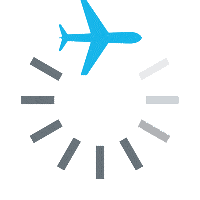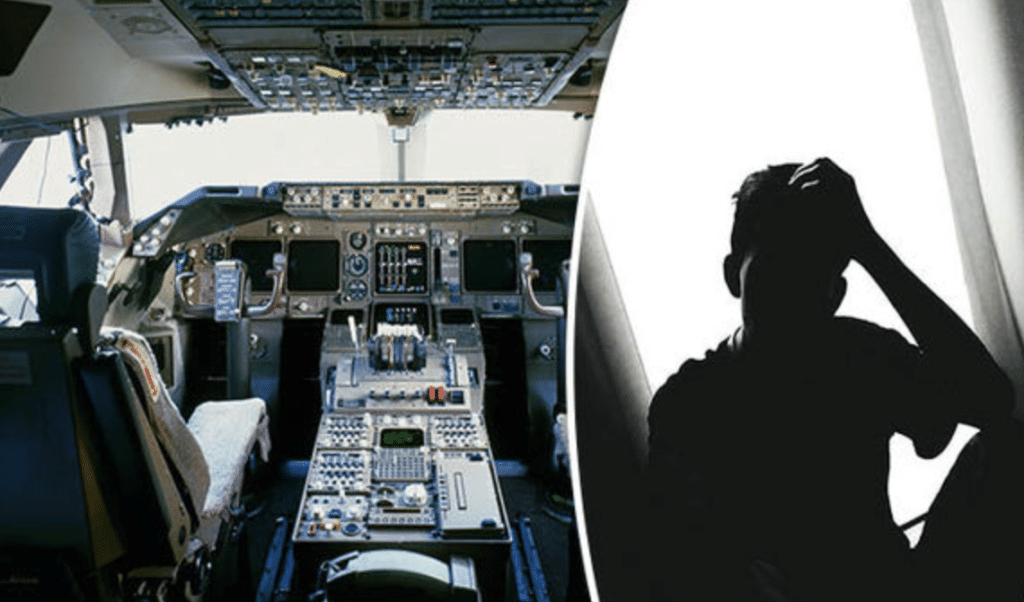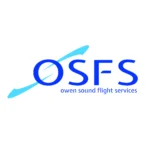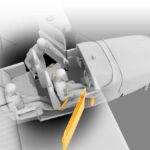We get a lot of questions about depression, mental health issues, anxiety, SSRIs, and antidepressant medications from potential students who want to pursue aviation as a hobby or career. The path to healing from mental health issues is not easy, but is well worth the effort in the long run. In this article, we will explore common questions from pilots and explain the medical process, as we understand it, for pilots suffering from depression or any other mental health issues. For information specific to ADHD in aviation, please visit our other blog article.
What is Depression?
In Transport Canada’s eyes, depression refers to any manifestation of a depressed mood. This includes depressed mood states or syndromes that are associated with:
- normal life events: losing a job, bereavement, etc.
- general medical conditions: severe illness
- psychiatric diagnoses characterized by a depressed mood: bipolar, adjustment disorder with depressed mood, dysthymia, etc.
- other psychiatric issues where depression is also a feature: PTSD, general anxiety disorders, substance use, schizophrenia, etc.
The term depression is casts a large net and can encompass many mental health illnesses.

How do I know if I am depressed?
Depression can look different for everyone and the symptoms will vary. You may notice depression in yourself or someone else through some of these symptoms:
- depressed mood or sadness;
- loss of interest or pleasure in previously pleasurable activities;
- change in appetite or weight;
- sleep disturbances;
- fatigue;
- feelings of guilt or worthlessness; and/or
- suicidal ideation.
This is not and exhaustive list. Symptoms of depression vary with each individual.
Risks of Depression in Aviation
Symptoms of depression can severely compromise the ability of an individual to function safely in an aviation environment. Individuals can represent a risk to themselves, to others, and to the safe operation of an aircraft. For example, a pilot may choose to report for a flight fatigued even though they know they should not be flying due to the internal ideations caused by a depressive mood. The worst case is that a pilot may have ill intentions of utilizing an aircraft to end suffering caused by their illness.
I Need Help
Get help, now! If you are suffering from mental illnesses, you should seek appropriate medical attention from your general practitioner, family doctor, circle of care, family members, etc. You can manage this, you can beat the illnesses, you can get help, the hardest part is making the decision to get help though. Once you get that out of the way, it will get better over time. It will still be hard, but it will get better.
We do not recommend going to a civil aviation medical examiner for help regarding mental health issues, unless the CAME is also your family doctor and is a part of your circle of care. Medical examiners act on behalf of Transport Canada to assess your health, their role during an examination is not to directly provide you with care. They may choose to help you, but that role should be reserved for your family doctor who knows you and your medical history.
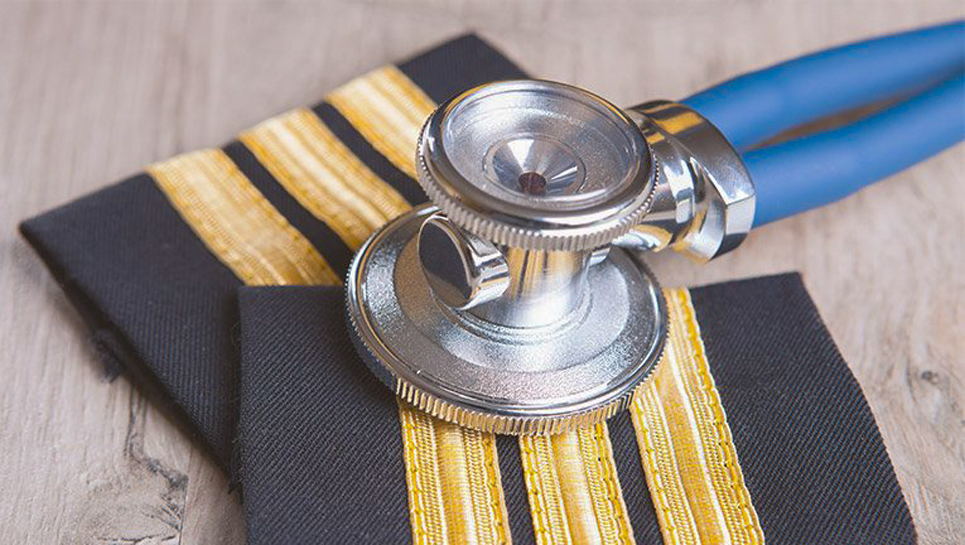
Current Holders of Medical Certificates
If you currently hold a medical certificate and are experiencing symptoms of depression and/or requires treatment with an antidepressant must self-ground themselves in accordance with CAR 404.06. Even short bouts of grief due to life circumstances may warrant a pilot to refrain from exercising their pilot privileges.
“Self-grounding” is not only acceptable, but encouraged.
Medical Examinations
Initial Applicants
Any new applicant for an aviation medical will undergo the same medical examination as anyone else. When directly asked about mental illnesses, you should and must disclose any history of depression or treatment with an antidepressant. Your application will automatically be deferred for assessment by Civil Aviation Medicine until they receive sufficient information for a proper assessment through an Initial Clinical Report (below).
If you had depression or are suffering from depression and are currently on antidepressants, you should come into your medical examination prepared with the Initial Clinical Report. Failure to do so will delay the processing of your medical. Approach the medical examination armed and ready with all information possible to minimize any possible processing delays. Any sort of back and forth between applicants and Civil Aviation Medicine will cause perfectly healthy people to lose their minds.
Applicants who have this history are NOT eligible for a Category 4 medical.
Medical Renewals
Any medical holder who has new symptoms of depression and/or require treatment with an antidepressant will be initially assessed as unfit until more information is provided through an Initial Clinical Report (below). The CAME can renew a medical on the spot, but this is discussed later on.
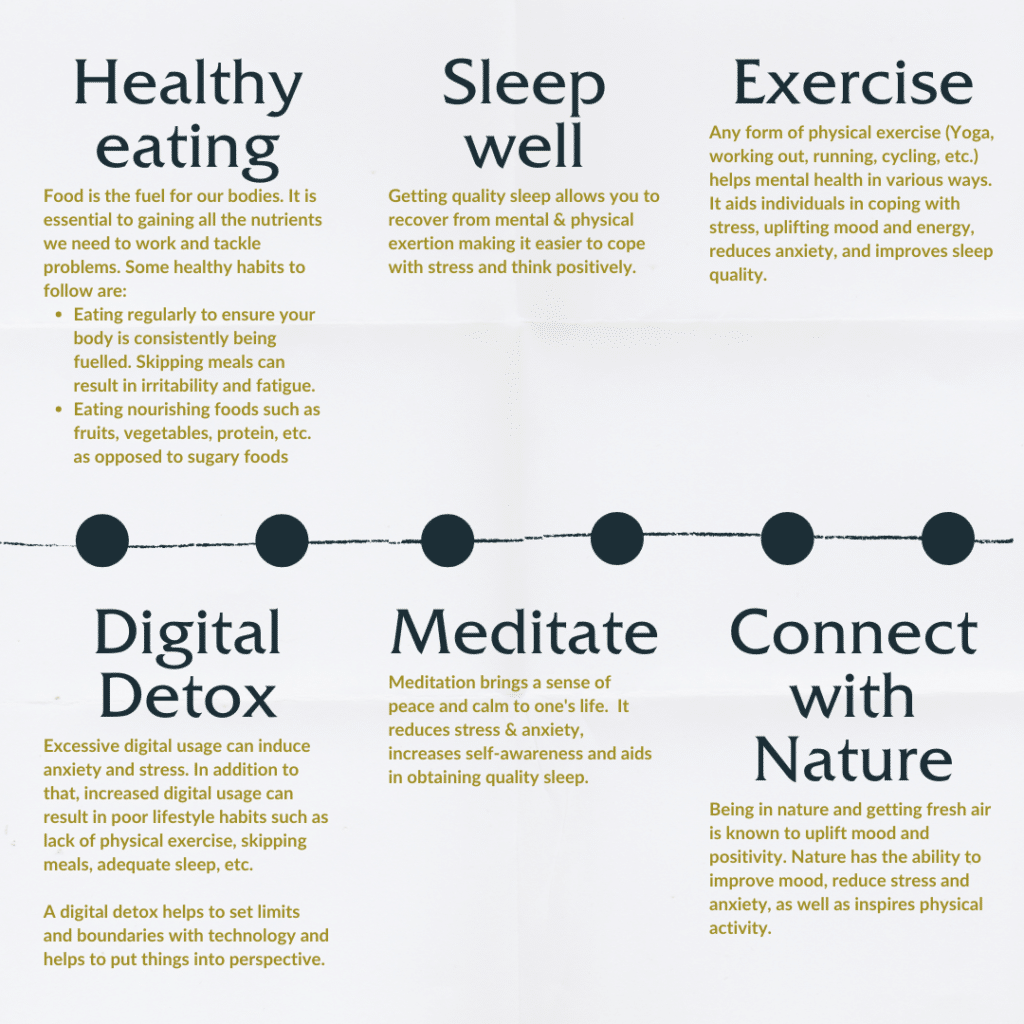
Initial Clinical Report
An Initial Clinical Report is not the same as a Comprehensive Mental Health Assessment, even though the initial report should follow the format used for the CMHA. An initial clinical report to Transport Canada can be written by a physician, licensed therapist, etc. If a physician, such as a family doctor, provides the initial clinical report, Transport Canada may ask for a full CMHA by a psychiatrist at any time.
Transport Canada may accept an initial clinical report for a Category 3 or 4 medical. They may accept it. But, you can always provide a CMHA for the sake of thoroughness. Again, the initial clinical report should follow the format below.
Comprehensive Mental Health Assessment
Any applicant for a Category 1 or 2 medical who suffers from a mental illness will be required to provide the medical examiner or Transport Canada with a Comprehensive Mental Health Assessment with confirmation of the diagnoses by a psychiatrist or psychologist before being considered for certification.
The comprehensive mental health assessment by a psychiatrist or psychologist must include:
- history of presenting problem
- psychiatric review of symptoms (including features of depression, anxiety, mania/hypomania, panic attacks, trauma, psychosis, obsessions/compulsions, suicidal or homicidal thoughts, etc.)
- past mental health history (including hospitalization, prior diagnoses, treatments, prior ideations/attempts)
- medications
- substance use history
- contributory family psychiatric history; social and development history; and medical or surgical history
- diagnoses in accordance with DSM 5 with additional comments required for bipolar disorder; panic disorder; psychotic disorders or episodes; and other diagnoses such as PTSD, ADHD.
- management plan (including pharmacological and non-pharmacological treatments, follow-up, work limitations)
- prognosis, including comments on stable remission
- any other information of concern.
If an applicant or medical holder has a history of hospitalization for psychiatric reasons, those reports must be forwarded to Transport Canada along with an Initial Clinical Report or comprehensive mental health assessment.
Disqualifying Conditions
Some conditions will automatically disqualify you from holding an aviation medical. The following is a non-exhaustive list of medical conditions which exclude you from medical certification.
- Bi-polar disorder;
- History of psychosis;
- History of suicide attempts or recurrent suicidal behaviour; and
- Any symptoms consistent with panic/anxiety attacks or similar events

Medications – SSRIs and More
It is Transport Canada’s job to ensure that you and the public are safe when you take control of an aircraft. Their job is to protect everyone and cover their own butt’s. So, how does medication play into all of this? Well, assuming you have no disqualifying conditions, Transport Canada will consider applicants with a history of depressive disorders as long as they can prove they are stable. This means that when you either go onto or off of an SSRI or an antidepressant, you must show stability for at least 4 months on a stable dosage, or no dosage, before certification can be considered.
The antidepressant used to treat depression must be non-sedating. Guidance on types of medications is provided below.
Any transition or mood altering changes will delay the certification process. You need to show that you are stable, period. You will prove this stability through a report from your doctor, psychiatrist, or psychologist. If you are an initial applicant to an aviation medical, come to your medical examination armed with this report that proves stability. If it comes from a psychiatrist or psychologist, all the better. If not, do not delay, go get an initial report from your family doctor and get the process started.
If at any point you have doubts, simply consult with a Civil Aviation Medical Examiner (CAME), they know better than this article. Well, most do.
If you plan on discontinuing your antidepressant, you should consult with a CAME before doing so.
Antidepressants can also be used to treat other minor, non-depression related conditions that would not be disqualifying, like symptoms associated with menopause. Transport Canada assesses these on a case-by-case basis.
Monitoring and Updates
Transport Canada may issue you a medical while on SSRIs, but they may place restrictions on your license, like only flying with an accompanying pilot or changing the validity period of your medical to 1 year, 6 months, etc.
Once certified, applicants should have regular monitoring for side effects or onset of symptoms by their physician. Transport Canada will require updates from the treating physician to confirm the lack of significant symptoms and adverse side-effects of medications.
Eventually, pilots may ask to have medical restrictions removed, even while on approved SSRIs. Medical follow ups may be changed at Transport Canada’s discretion. It may even get to a point where medical examiners can renew your medical if you are in stable remission, have no changes to your medications, and there are no other safety concerns. Yay!

Closing Remarks
It isn’t easy, but it is possible! You CAN get a medical while on an SSRI. You need to be healthy enough to get to that point and to do that, you need to get the proper help that isn’t simply pharmacological. Gain a support group, seek help through therapy, and work on your mental health in addition to any medications. SSRIs may help, but they are not a panacea and magical cure. By being prepared and armed with the right information, you can get your medical and have a safe flying career.
Can I be a pilot if I’m on antidepressants?
Transport Canada can approve an aviation medical if the candidate can show stability on a specific list of medications.
What mental conditions disqualify you from being a pilot?
Candidates who have been diagnosed with bipolar disorder, ADHD, psychosis, and who have a history of suicidal attempts cannot hold an aviation medical.
Can you learn to fly with depression?
If treated properly and with the right care, a pilot can fly as an airline or commercial pilot.
Can Canadian pilots take antidepressants?
In Canada, medical fitness for pilots and air traffic controllers who use antidepressant medications is determined on a case-by-case basis. Transport Canada (TC) has said these medications, “may be acceptable for aviation activities in selected circumstances.”
What medications can I take which are likely to lead to my medical being approved?
You must be in stable remission to be considered for an aviation medical. Applicants have been successfully recertified while on fluoxetine (Prozac), setraline (Zoloft), buproprion (Wellburtrin), citalopram, escitalopram (Cipralex), venflaxine (Effexor), desvenlafaxine (Pristiq), and vortioxetine.
Which medications will not lead to my medical being approved?
The following list of medications are considered to not be compatible with an aviation medical: mirtazapine, parozetine, trazadone, dozepin, fluvoxamine.
The information in this article was taken from Staff Instruction SI 404-004 Issue No: 01 Effective Date 2023-06-01. The information in this article may be inaccurate or out of date. If you have questions regarding mental health and aviation, you should discuss this with your doctor, CAME, or Transport Canada. We are not liable for any negative impact as a result of your interpretation or actions recommended in this article.
- Owen Sound Flight Services
- Air Canada Pilot Salary
2024 Air Canada Pilot Strike Update We have had numerous requests for interviews ahead of the looming Air Canada pilot strike. Please be patient as our team prioritizes press requests. All emails should be directed towards […]
- How to Brief Your Passengers
When flying with a Canadian airline, it is reasonable and logical to receive a passenger briefing from the flight attendants. As a pilot of a small airplane, it may not seem so obvious when you have […]
- Aviation Resume Writing
Freshly minted commercial pilots in Canada often wonder what the next steps are. After all, they are now eligible to start earning money as a pilot in Canada. Building an aviation resume, or specifically a pilot […]
- Depression and Medications for Pilots
We get a lot of questions about depression, mental health issues, anxiety, SSRIs, and antidepressant medications from potential students who want to pursue aviation as a hobby or career. The path to healing from mental health […]
- ROC – A: Restricted Operator Certificate with Aeronautical Qualification
There are a lot of misconceptions out there about the ROC A and the legalities surrounding radio usage in Canada. This article will explore and answer some questions surrounding aeronautical radios, including the ROC-A. Governing Body […]
